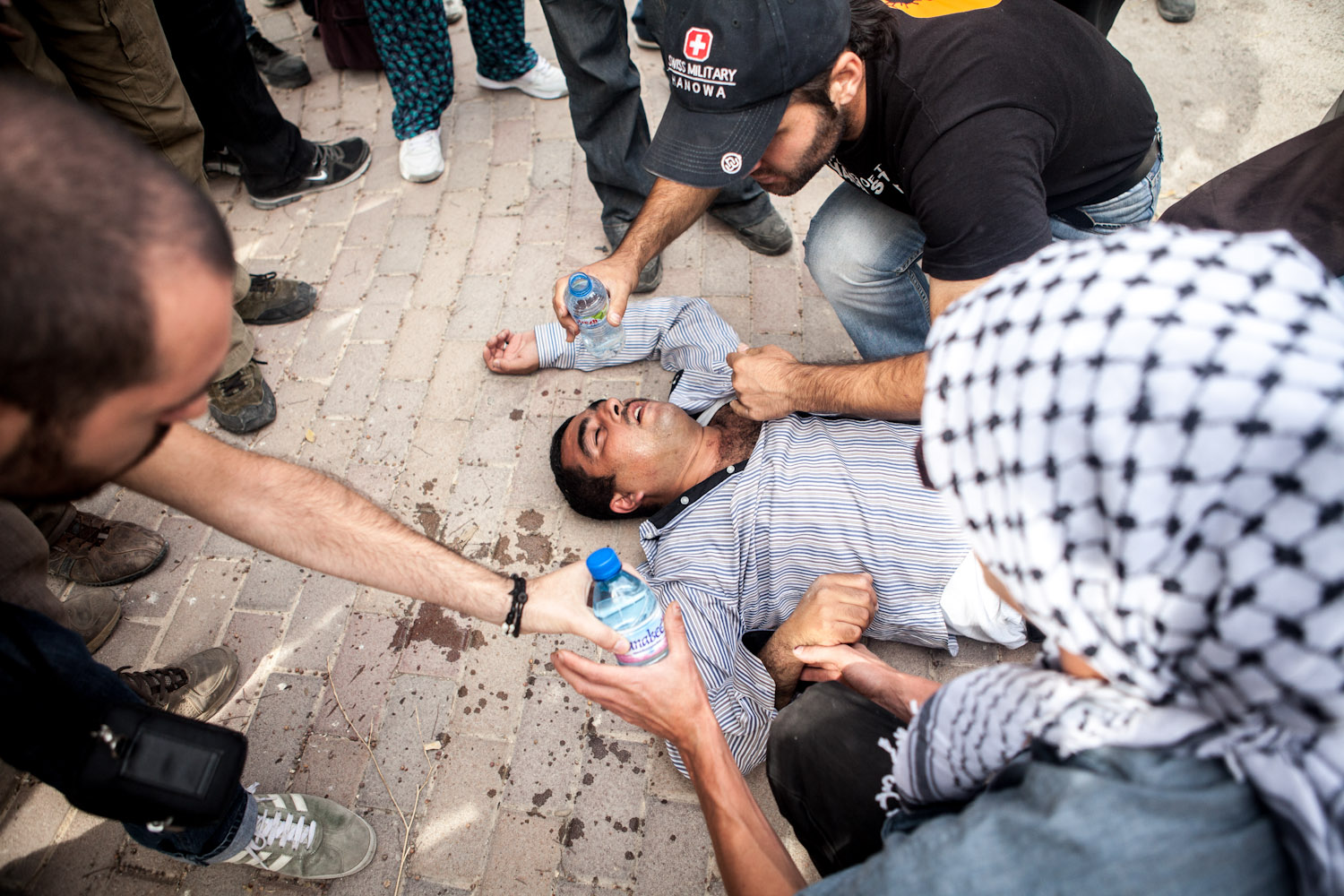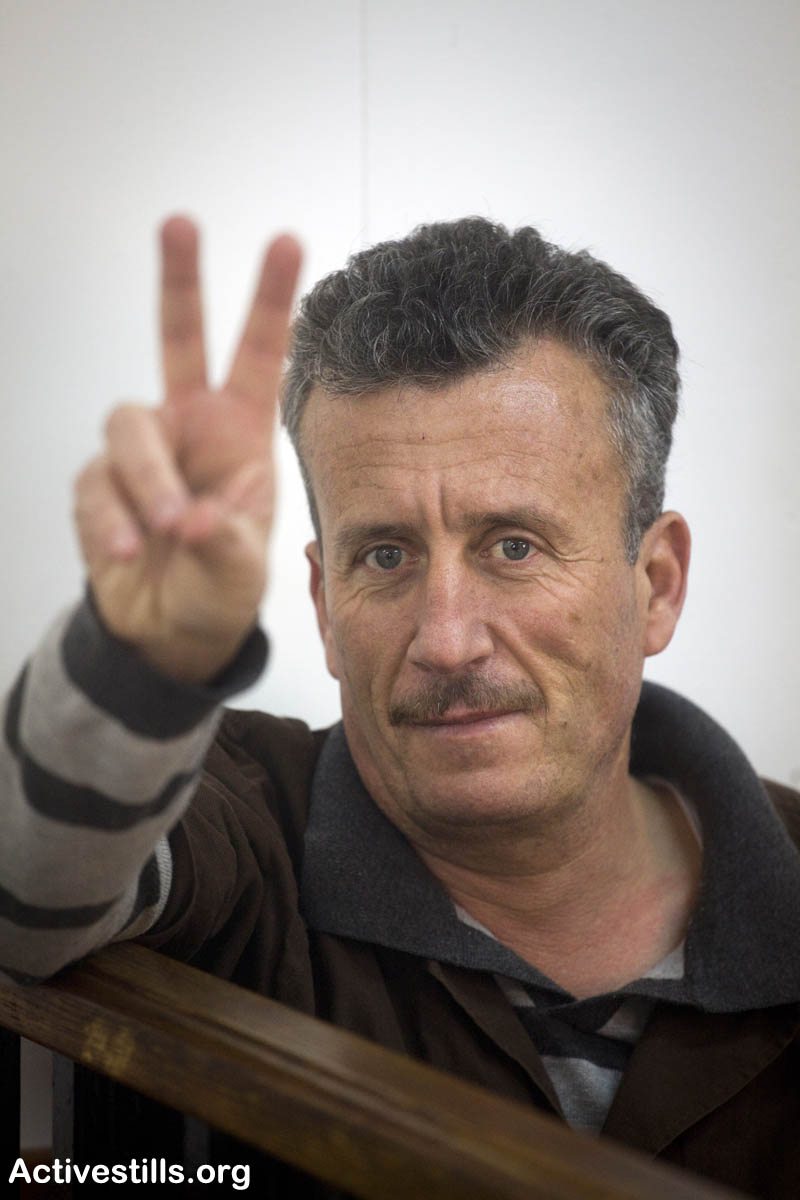Tag: Bassem Tamimi
-
Bassem Tamimi injured and arrested with 3 others at Boycott Israel protest
24 October 2012 | International Solidarity Movement, West Bank VIDEO from the action: Dozens of Palestinians and internationals protest at Rami Levy Supermarket near the illegal settlement of Sha´ar Benyamin on October 24th. This direct action aims to highlight the Boycott-Divestment-Sanctions (BDS) Campaign that seeks to promote a boycott of Israeli goods. Four people, including…
-
Palestinian activist to judge: I do not recognize your rules
20 February 2012 | Popular Struggle Coordination Committee Bassem Tamimi from Nabi Saleh testified yesterday as part of the defense’s case in the ongoing trial against him. Tamimi, suspected of protest related charges, was arrested on March last year, and remains in detention since. After 11 months in an Israeli jail, Bassem Tamimi, a prominent…
-
Military court approves illegal interrogation of a minor
10 January 2012 | Popular Struggle Coordination Committee Major Sharon Rivlin, a judge at the Ofer Military Court, accepted as admissible the testimony of a 14 year-old Palestinian boy who was unlawfully arrested in the dead of night, questioned without being allowed sleep, denied his right to legal counsel and not told of his right…


